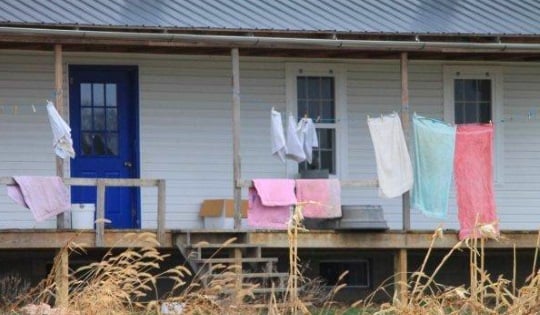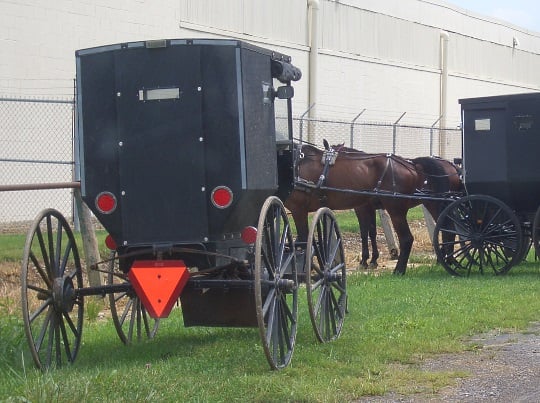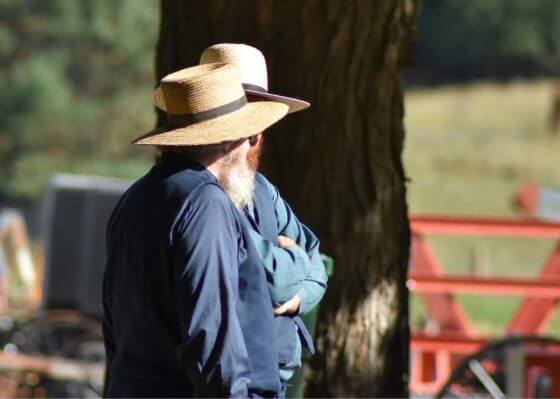Diversity
Questions about different Amish groups

- Are Amish all the same?
- What does Old Order mean?
- How many Amish groups are there?
- Why are there so many Amish groups?
- Who are the most conservative Amish?
- Who are the least conservative Amish?
- Are there any non-white Amish?
- Do all Amish get along?
Are Amish all the same?
No. Amish of all stripes do share similar practices and beliefs–a commitment to nonresistance, adult baptism, and use of the horse-and-buggy, to name a few.
However, Amish vary in which technologies they permit, in the way they practice social shunning, their level of engagement with non-Amish people, approach to education, style of clothing, hair, and overall appearance, and many other ways. There is much diversity within Amish society.
What does “Old Order” mean?
When we talk about “the Amish”, we usually mean Old Order Amish. These are the Amish who use the horse-and-buggy, wear plain clothing, and use the Pennsylvania Dutch language. Some other groups which use “Amish” in their name–Beachy Amish or Amish Mennonites–are not considered “Old Order”. The Old Order branch developed during the latter 1800s.

How many different Amish groups are there?
The authors of The Amish list over 40 affiliations, which are groupings of churches which share distinctive practices, identity, and origins. There are also over 100 congregations not associated with a wider affiliation.
Why are there so many Amish groups?
While today’s Amish share common roots, over the years disagreements over spiritual and material matters have led to division and the formation of offshoot churches. Some among the Amish express regret at this trend. Some communities, such as Holmes County, Ohio, have shown a remarkable amount of division, while others, such as Lancaster County, have managed disagreements while largely preserving a single affiliation.
Who are the “most conservative” Amish?

There are a few very conservative Amish groups. The best-known and arguably most conservative are the Swartzentruber Amish, who reject many technologies which other Amish accept (electric lighting on buggies and indoor plumbing are two examples).
Swartzentruber Amish have perhaps the plainest appearance of any Amish and are most unbending in terms of accepting change. Other groups maintaining plain practices and lifestyles can be found among the Swiss Amish and Nebraska Amish.
Who are the “least conservative” Amish?
The New Order Amish are often described as most progressive, however this can be misleading. While some New Orders accept a high degree of technology (even using public electricity and phones in the home), others do not.
Additionally, New Order Amish could be described in one sense as “more conservative” regarding their approach to courtship, emphasizing “clean dating” practices that other groups (including Swartzentruber Amish) do not.
Are there any non-white Amish?
Are there any black Amish people? Or Amish from other races or ethnicities? Amish are of European background, and thus overwhelmingly white. However, some Amish have adopted children or different races, including of Latin and African background. While an adopted child of Amish parents may be of non-Caucasian background, he or she would need to elect to be baptized to be officially considered a member of the Amish church.
Theoretically a non-white adult could become Amish, though would not only face the usual obstacles (language barrier, drastic difference in lifestyle and worldview, limited technology) that any other would-be convert would encounter, but also any other prejudices that might exist on the basis of race (see An Amish Paradox p. 268-269 for further discussion). There has been at least one report of a man in Ohio claiming to be the “only Hispanic Amishman.”
Do all Amish get along?
Amish may disagree on certain issues such as technology or shunning, but still feel a kinship despite differences. There can be a large gap between the plainest Amish and more progressive groups, however, to the extent that one may hardly view the other as “Amish”.
Despite differences, Amish cooperate to various degrees in business, schooling, and church matters. Being “in fellowship” means that Amish churches will cooperate closely on a spiritual and practical level.
References:
- Nolt, Steven M., and Thomas J. Meyers. Plain Diversity: Amish Cultures and Identities. Baltimore: Johns Hopkins University Press, 2007.
- Hurst, Charles E., and David L. McConnell. An Amish Paradox: Diversity & Change in the World’s Largest Amish Community. Baltimore: Johns Hopkins University Press, 2010.
- Kraybill, Donald B., Karen Johnson-Weiner, and Steven M. Nolt. The Amish. Baltimore: Johns Hopkins University Press, 2013.
- Johnson-Weiner, Karen. New York Amish: Life in the Plain Communities of the Empire State. Ithaca : Cornell University Press, 2010.
- Rutter, John. “An open invitation to a closed culture.” Lancaster Online. Lancaster Intelligencer Journal/New Era, 11 Sep. 2013 (updated). Web. Accessed 23 Apr. 2015 (page update).
To Cite this Page: Wesner, Erik J. “Diversity.” Amish America. Erik Wesner, 29 Jan. 2015. Web. [Date Accessed]. <https://amishamerica.com/diversity/>.






Interracial Family
Hello, my husband and I are considering raising our family in an Amish community. Our main concern is that he is Mexican, and I am white. We were just wondering if this would be an issue, as many people outside of the community do not support our marriage for that reason.
Four years late, but others may find it useful. The Amish that I know would not have any problems at all with that. Not to try to put words in their mouth, but I think I can safely say their view would be something to the effect of “we are all God’s children”.